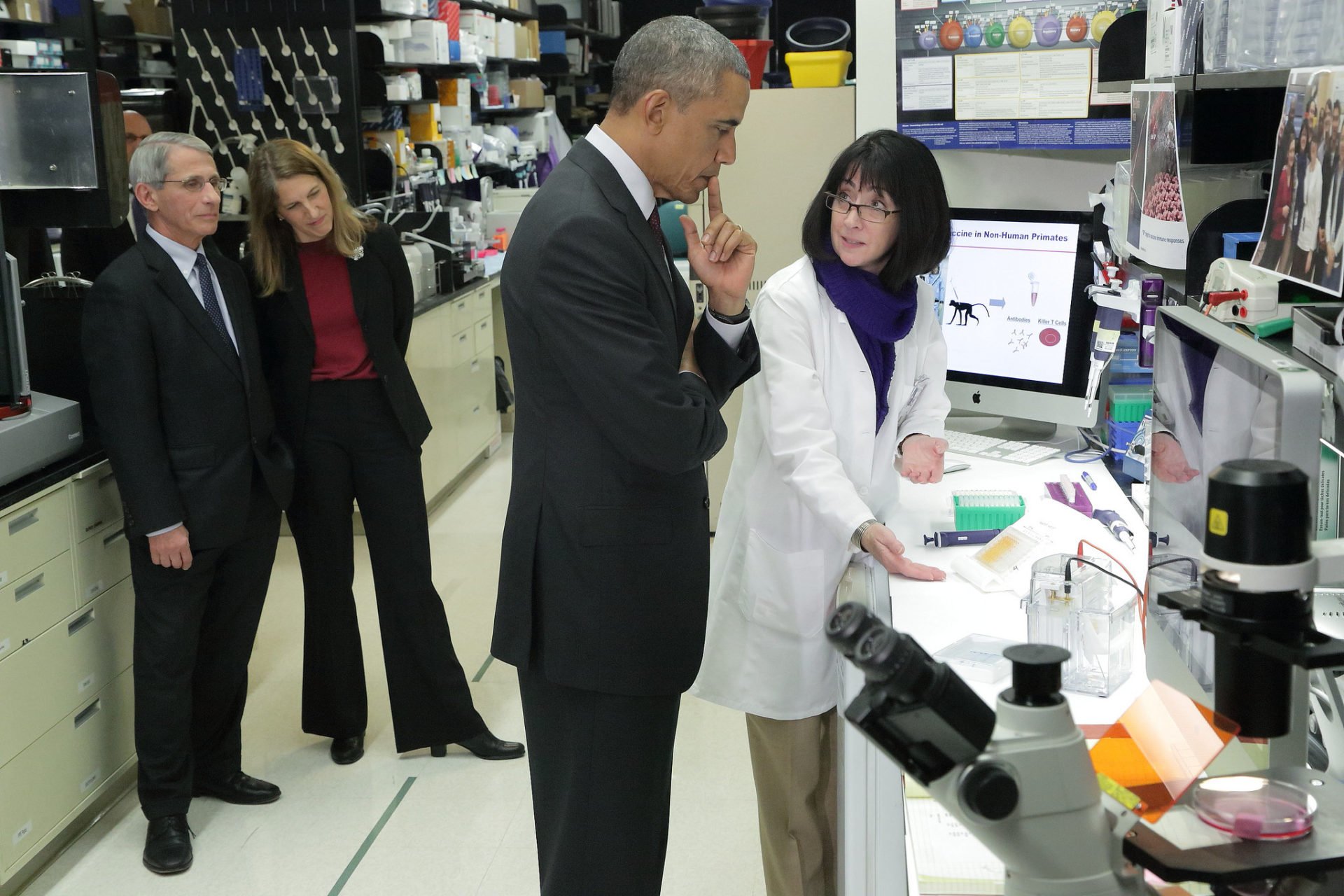
At a genomics conference last week, National Institutes of Health official Kathy Hudson provided an update on the government’s Precision Medicine Initiative (PMI). It was a fascinating peek at a monumental effort to launch this program—and to make real progress before the next president takes over.
Hudson, deputy director for science, outreach, and policy at the NIH, spoke to attendees of the GET Conference (short for genomes, environments, and traits) in Boston. Many of the attendees are also enrolled in the Personal Genome Project, which analyzes participants’ genetic information and makes it publicly available for other scientists to study; they generally applaud large, open-access efforts like the study at the heart of the Precision Medicine Initiative.
A study group of 1 million people would give scientists much-needed breadth for genetics and other research. The program aims to analyze and correlate participants’ genetics, environment, clinical information, and more to generate data that could help explain the biological roots of common or rare diseases, mental illness, and how people respond to therapies. NIH aims for the group to generally reflect the country’s diversity, from ethnic to social to health demographics. Among other things, Hudson hopes that a study group of this size will help “tackle some vexing questions about health disparities” across populations in the US, she said.
Hudson focused her talk on this arm of the PMI, known as the cohort program, which has presented unique challenges to the traditional NIH approach for studies that gather large amounts of personal data. For instance, she said President Obama is advocating that participants get access to the data generated through the study. That sent the NIH team scrambling to figure out how to accomplish this, since it does not fit with the agency’s usual privacy and anonymity guidelines. For this initiative, Hudson said, participants will be considered partners—a major change from the usual role of research subjects.
The cohort program aims to enroll its 1 million participants during the next four years, and Hudson said that a major focus for the team has been ensuring that NIH can accept anyone who wants to join, not just patients recruited by their physicians. Ultimately, the vision is not only to conduct this initial PMI study, but to use this population as the foundation for a legion of follow-on research programs to answer more targeted questions. If successful, the PMI cohort will become the biggest longitudinal study in this country, allowing scientists to track medical and other developments in a carefully documented group of people for years to come.
That success may hinge on one pivotal detail: timing. The inauguration of a new president in January means that virtually all appointed officials—including the NIH director and high-level people like Hudson—will be replaced, potentially with people who don’t share their enthusiasm for this initiative. With that in mind, the team charged with launching it has deliberately accelerated key processes: Hudson said the NIH intends to distribute sizable grants by summer and recruit the first 79,000 participants by December. That’s light-speed for a government agency, and shows just how badly this administration wants to prove the value and momentum of the project before it’s too late.
NIH Fast-Tracks Giant Precision Medicine Study
At a genomics conference last week, National Institutes of Health official Kathy Hudson provided an update on the government’s gigantic Precision Medicine Initiative (PMI). NIH aims to make real progress before the next president takes over–and to enable any American who wants to to take part.
















